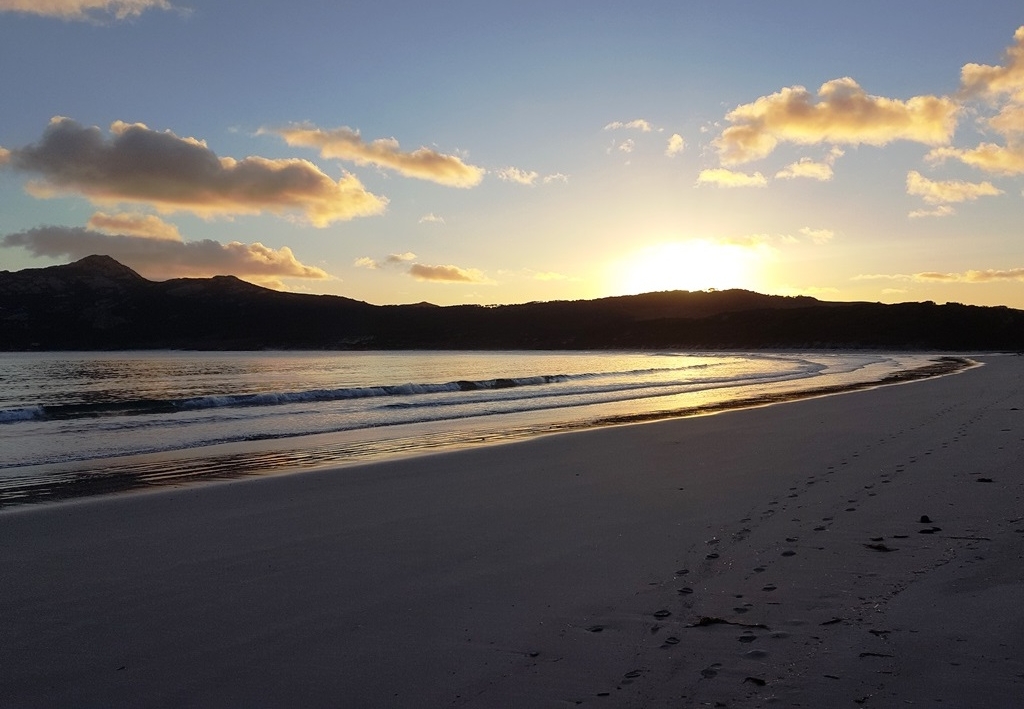Hill Haven
/The poet’s father on his tractor, by Bill Clark
By Carol Barrett:
After a poem by Craig van Rooyen
They aren’t moles. I’m told nights are too cold for moles in the high desert. Then what -- gophers? Ground hogs? Prairie dogs? In the damp soil west of the Cascades, moles were plentiful as robins. My father got his supply of traps at yard sales for two bits, some farmer having given up the harvest ghost. Whenever hills popped up, he’d dig down a few inches and lay them in, warn us to stay clear. He didn’t want an ankle enmeshed in the gears, a toddler’s curious hand clamped to the earth. When he got one, he’d announce it supper-time, bury the sleek body in the apple orchard, or along the edge of the woods, where alder leaves made for soft mulch.
I never looked one in the eye. But I spotted plenty of mounds, out digging potatoes or tearing corn from the stalk, peeling broad squash leaves back for a golden bonanza. One year a new ordinance forbid trapping them, on account of cruelty to animals. My father kept up his solution despite the risk. He figured, more humane than shooting them, and no law against that. He was especially perturbed when they dug up the lawn, clipped short for picnics of a summer evening, cedar table re-varnished every five or six years to restore what wind and rain had roughed up. The trap wasn’t an instant success. You had to wait for the critter to come up for air. It could take days, even weeks.
Here my hidden low-lifes stay quiet all winter, perhaps hibernating. But come spring, their handiwork pops up all over the yard. I scoop lush mounds into flowerpots for the pine seedlings that spring from ample cones. The soil is just right – combed and softened, free of roots, fine as biscuit dough. When I first started repurposing their primordial heaps, I feared I might slice one with the shovel, but it’s never happened. They dig their tunneled dugouts well below the planted surface. And they won’t cave in. When I tamp the excavated soil down, the lawn is flat as before the latest hill happened. In time the grass will spread across the brown moon, fill in with the help of whirling sprinkler.
We manage to co-exist. These creatures save their building frenzy for late at night when I’m already tuckered. When I open the door to a new day, I may find another hill to salvage for my tree farm, small but growing on the back deck. Sometimes I’m blessed with two or three, yards apart, a quick jaunt with the garden cart, sun on my neck. Life goes on as usual underground, my father’s ashes on a tunneled slope. He is getting acquainted with new friends, inviting them to watch reruns of Perry Mason, where it all turns out okay in the end, his pipe smoke mingling with the damp and porous earth.
***
Carol Barrett coordinates the Creative Writing Certificate Program at Union Institute & University. She has published two volumes of poetry and one of creative nonfiction. A former NEA Fellow in Poetry, Carol has lived in nine states and in England. She currently resides in the high desert of central Oregon. Her poems have appeared widely in literary magazines, and in over fifty anthologies.









